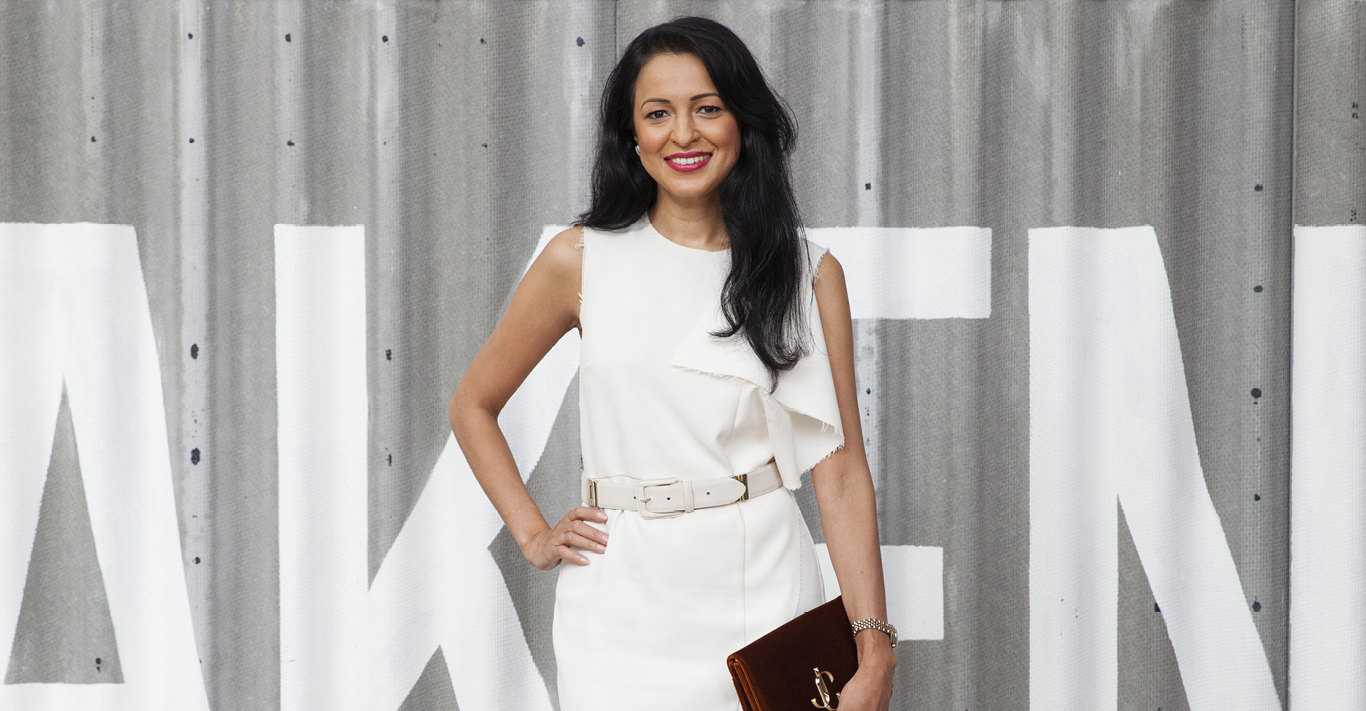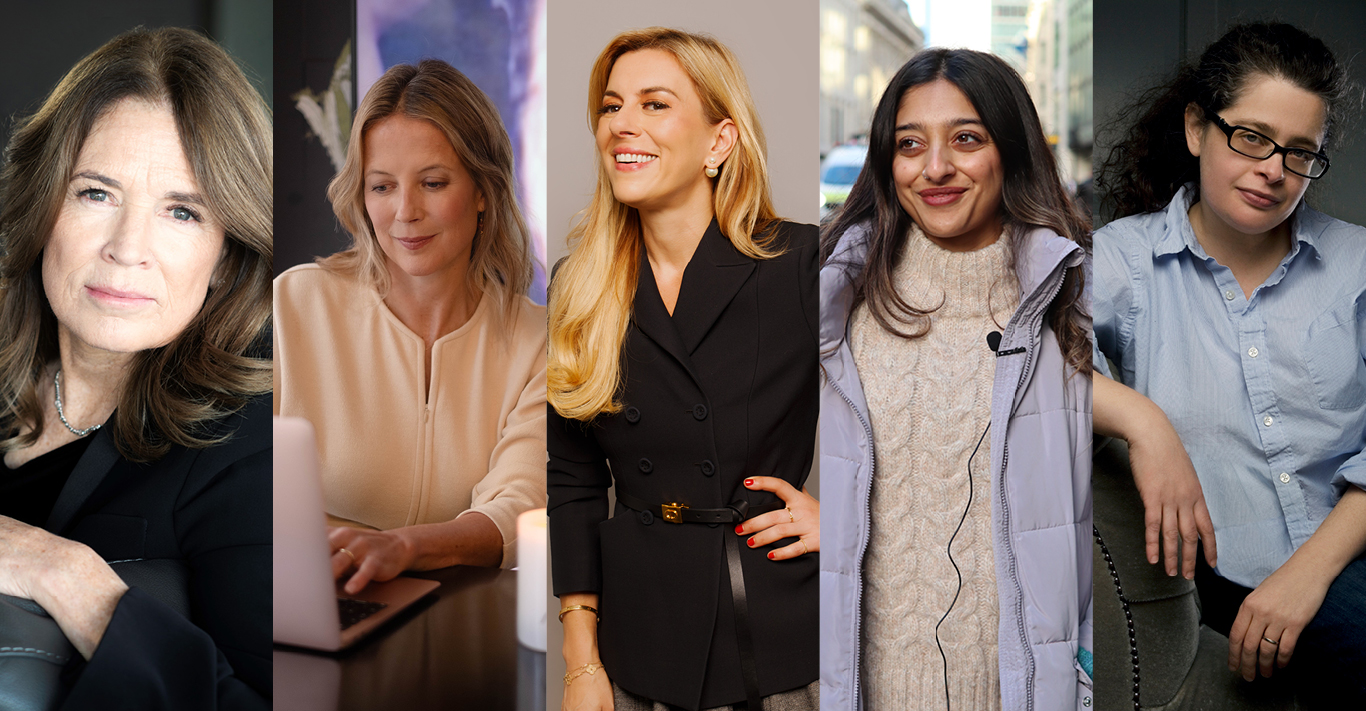PHOTOGRAPHY
Trent McMinn
WORDS
Jemima Wilson
Tell me a bit about your background and how you started your career?
I come from humble beginnings, born in Bangladesh, and I arrived in the UK when I was a baby. My father worked as a waiter supporting his family of six, until he set up his own business. One thing I was always taught was the value of education, and I used this to study two degrees, including an MSc in engineering from the University of Warwick.
After my studies were over, I worked as a management consultant in oil and gas, mainly on large business transformation or technology programmes. I loved travelling and through work I went to the USA, Europe, Singapore and Dubai. Some highlights of my career included working at the F1 circuit in Abu Dhabi and the Dubai World Trade Centre.
What attracted you to working with UBS and what have been some of your biggest achievements there?
I joined UBS in 2015 after I became a mother and was seeking less travel. I was the unified communications programme manager, which included, at the time, delivering the first-ever upgrade from Lync to Skype for a Tier 1 bank. I went on to deliver another software portal for nearly 100,000 users, followed by a cloud migration programme for the investment bank.
UBS is a land of opportunity where you can grow at a pace that suits you. I have worked with some of the smartest people in my career here and I have been supported and driven throughout. What I like most about UBS is how we can continuously push the boundaries both in technology and also for our employees. I am one of the founding members and co-chair of MOSAIC, our race and ethnicity employee network, and we have worked with senior leaders and the board to set aspirational targets and an action plan to increase ethnic minority representation.
Why is it so important for you to promote BAME representation within the company?
London has a working BAME population of around 40%. It is important that our company reflects the best of the local labour market and embraces the economic and social value that diversity brings. McKinsey & Company did a famous study that revealed companies with racially diverse executive levels were significantly more profitable than if they were only diverse in terms of gender. It’s not just about the bottom line though. Having grown up in the 80s during the era of the British National Party (BNP) and the National Front, it is worrying that history is repeating itself, albeit in much more subtle forms. Sometimes not so subtle with the tragic death of George Floyd highlighting some of the stark disparities in our institutions. Standing back and not speaking out on injustice is not me. I was raised to be quiet and not voice my opinion. Now I cannot stop talking.
What were the main challenges you faced in your career and how did you overcome them?
Although it sounds cliched, juggling the responsibilities of being a mother and working full time has, without doubt, been one of the biggest challenges in my career. I once worked for a company where I was expected to travel regionally, one day in Birmingham, the next in Brighton. My daughter was only a young toddler at the time. I realised I would rather spend the commuting time with my daughter than on a train. As a working mother you have to become incredibly efficient with your time. Your day revolves around making sure your child is ready for the day in the morning and then doing the evening routine with them. I quit after 6 months. So, it’s also important to know when to cut your losses. As much as I love my work, I love my family more. UBS has proven to be a much more balanced environment that truly respects that dynamic and one of the reasons I have thrived there.
What do you believe are the keys to effective leadership?
Effective leadership is when you have your organisation working towards your vision with you. Achieving that is a mixture of being a good role model, having integrity and being true to yourself. When you display these qualities with an easy-to-understand vision, you will get the support and motivation you need to achieve your goals.
I always try to stay focused on the goals of the programme I lead. At the same time, I try to build a rapport with my team and stakeholders, using humour and common interests. It’s not always easy when I don’t play golf, ski or watch football. That’s why I focus a lot on inclusion. Verna Myers summed up very nicely what inclusion means: ‘diversity is being invited to the party; inclusion is being asked to dance’. As a leader I want my organisation to thrive on their strengths and embrace their team differences because that is where inclusion can yield the most benefits.
What advice would you give specifically to women in leadership roles?
I don’t shy away from the fact that I am a working mother, and feminine in my style (I keep a makeup bag with lip gloss on my desk!). Being a woman, I used to feel the imposter syndrome, where we often don’t feel we deserve or can do the job we are tasked with. But just remember there are extraordinary things we can do that men can’t. And then know that every job or your work can be broken down into simpler manageable tasks.
Be fearless, never be shy to speak out about your opinions or if you have a view that’s relevant to your work. The more your voice gets heard, the more you will get noticed.
What’s the best piece of advice you’ve been given?
‘Earn your stripes’. That means that while many of us want to change the world for the better, establish your reputation and credibility first. Don’t think everything will be handed to you on a plate. That’s not the real world. The real world is much harsher. As a female Muslim in banking the invisible barriers are there. But if you show that you can deliver, then you are much more likely to make an impact.
The City is constantly evolving – what are some positive changes you think should be celebrated, and what areas still need more work?
The positives are that institutions are coming together to tackle global issues such as sustainability and diversity. This needs to be celebrated as the desire and commitment to improve is there. However, the results are too slow to make some of the real impacts we need. We still do not have enough female CEOs and even fewer Black CEOs. We are not working fast enough to achieve some of our environmental targets and we need much of the change to come from the “frozen middle”; the real “do-ers” in an organisation. Senior leaders may set aspirational targets in these areas, but these can only be achieved when everyone is on board. The frozen middle is too busy and this is where a lot of the real change can manifest.
Having featured on Brummell’s Inspirational Women list in 2019, what has been your biggest learning in the past 2 years?
Since 2019, we have had the global pandemic. There have been many learnings. For example, senior leaders who have realised that you can work from home and still be just as effective. I am much better in the office than at home. I prefer the buzz and energy of being around a team, but I’ve also appreciated quiet days working from home when I can be more effective. As the head of MOSAIC, I’ve had to demonstrate real leadership of our network, particularly during the tragic murder of George Floyd. It was a defining moment for us all, and one where we tried to highlight the realities of what many Black people face particularly from the very institutions that are there to protect them.
Incidents of domestic abuse also rocketed, and I organised our first-ever event on this topic at UBS, so there was an understanding of what it really is and what help and support is available. We invited David Challen, whose mother Sally Challen killed her husband after 40 years of domestic abuse, to speak. The abuse wasn’t really physical, it was more psychological. David worked with law makers and the police to help introduce coercive control as a criminal offence and reduce his mother’s sentence to manslaughter, freeing her and making legal history. Hearing him talk was incredibly inspiring.
The many relationships breaking down in this period due to domestic abuse has resulted in a different kind of hidden problem – the trauma of the family court process. Mainly mothers experiencing forced removal of their children to the abusive parent without legal recourse. It’s a very real issue that is taboo to talk about. I have set up a unique organisation that offers peer-to-peer support to address this. It includes Oxbridge alumni, businesswomen and university lecturers. They are the strongest and most resilient people I have ever met. At least 6 women in our group have experienced forced removal of their children by an abusive ex. Temporary family courts have been set up during the pandemic to cope with the influx of cases but it’s not enough, the whole system needs an overhaul.





